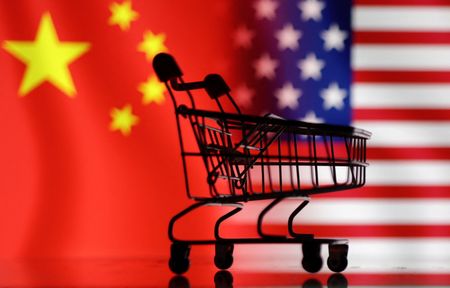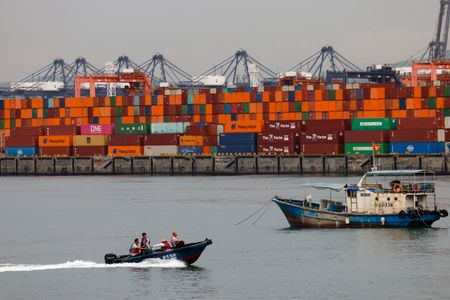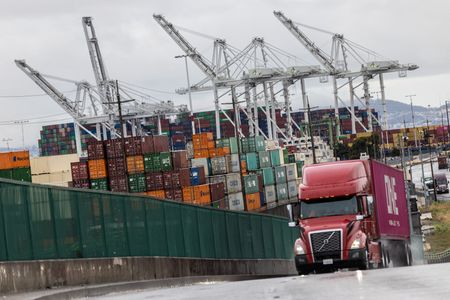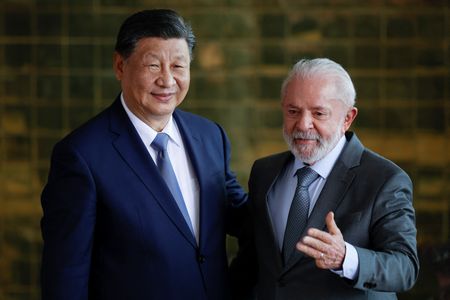By Helen Reid
LONDON (Reuters) – An agreement between the United States and China to temporarily slash tariffs stopped short of reinstating the U.S. “de minimis” duty exemption for ecommerce packages from China, but still gives online retailers like Shein and Temu a window to adapt their businesses.
The Chinese firms, which have taken market share from dollar stores and mall rivals to surge to among the top ten downloaded apps in the U.S., will likely use the 90-day reprieve to bring in bulk shipments and restock their U.S. warehouses, trade experts said.
President Donald Trump’s administration on May 2 ended the de minimis policy allowing packages worth less than $800 ordered online from China and Hong Kong to enter the U.S. duty-free.
Shipping products duty-free from Chinese factories to American consumers helped Temu and Shein surge in popularity, selling ultra-cheap gadgets, clothes, and accessories to American shoppers. Their success drove Amazon.com to set up a copycat service, Amazon Haul, which also benefited from the de minimis policy.
The removal of de minimis exposed those packages to steep tariffs of up to 145% on most Chinese goods, threatening business models centered around rock-bottom prices and leading Shein and Temu to cut advertising spending in the U.S. and turn to Europe instead. Amazon Haul launched last week in the UK and Saudi Arabia.
With the de minimis issue absent from Monday’s announcement, trade experts said the exemption did not seem to be coming back. Even so, the 90-day cut in tariffs to 30% from 145% would help Shein and Temu restock their U.S. warehouses at lower cost.
“This is great for Shein and Temu, if nothing else, to replenish their U.S. inventory,” said Yao Jin, associate professor of supply chain management at Miami University of Ohio.
Instead of making individual shipments by plane, Shein and Temu are likely to ship products in bulk via container ship to the U.S. over the next 90 days to stock up ahead of the next possible tariff increase, said Jin.
Temu owner PDD Holdings, Shein, and Amazon did not immediately reply to requests for comment.
On its U.S. website, Temu has been featuring products already in U.S. warehouses as it shifts its business model away from direct factory-to-consumer shipments. On May 2 Temu said all sales in the U.S. were now handled by locally based sellers.
Hugo Pakula, customs expert and CEO of trade automation platform Tru Identity, said Shein and Temu could send some products directly to consumers from China and others via bulk shipments, depending on price.
“There are some commodities that are low enough value that you can add 30% to the retail price and it still makes sense as that would still be cheaper than Amazon or anywhere else,” he said. “For a really, really cheap product, it’s very possible they continue [shipping] direct from China.”
For Amazon, the latest trade update may give some third-party sellers time to plan and expedite orders from China for the holiday shopping season, although it remained unclear how many merchants would bite at the opportunity.
(Reporting by Helen Reid, additional reporting by Arriana McLymore, Casey Hall, and Olivia Le Poidevin; Editing by Emma Farge, Peter Graff and Nia Williams)










